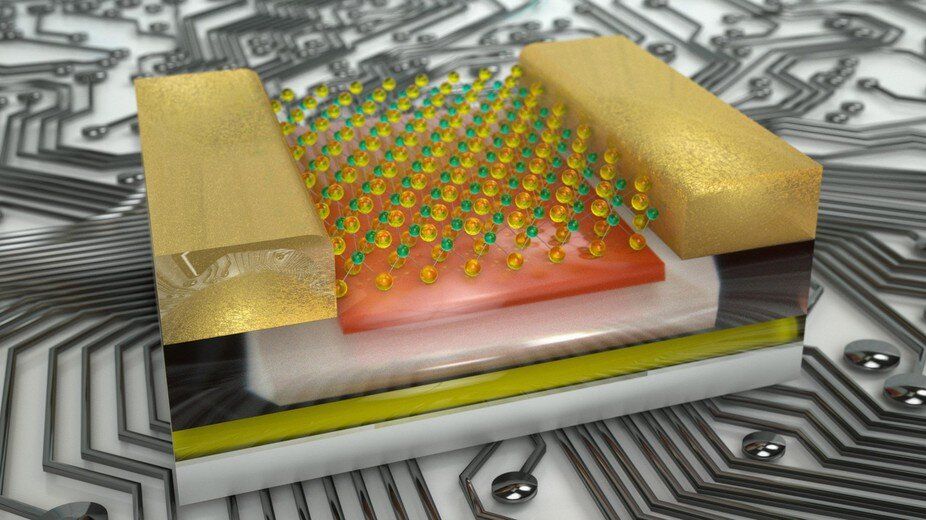EPFL engineers have developed a computer chip that combines two functions—logic operations and data storage—into a single architecture, paving the way to more efficient devices. Their technology is particularly promising for applications relying on artificial intelligence.
It’s a major breakthrough in the field of electronics. Engineers at EPFL’s Laboratory of Nanoscale Electronics and Structures (LANES) have developed a next-generation circuit that allows for smaller, faster and more energy-efficient devices—which would have major benefits for artificial-intelligence systems. Their revolutionary technology is the first to use a 2-D material for what’s called a logic-in–memory architecture, or a single architecture that combines logic operations with a memory function. The research team’s findings appear today in Nature.
Until now, the energy efficiency of computer chips has been limited by the von Neumann architecture they currently use, where data processing and data storage take place in two separate units. That means data must constantly be transferred between the two units, using up a considerable amount of time and energy.
